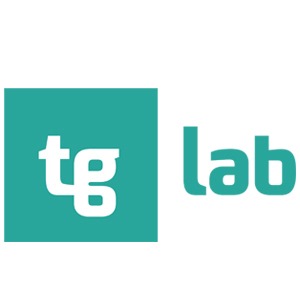Europe is already spending over 100 billion euros on sick days
Businesses and governments alike want to cut the rising costs attached to sick leave.
Ąžuolas L. Adlys
1/20/20254 min read


UK wage growth has risen for the first time in more than a year, but signs point to an ongoing cooling off in the jobs market amid mounting uncertainty following recent Budget measures.
PHOTO: Scanpix/Alamy Stock Photos
Sickness is a part of life, and sick days are a part of the working world. In Norway, they’re particularly prominent. Workers in Norway take more sick days than anywhere else in Europe, and the country is experiencing a 15-year high for absences.
Norway’s generous benefits system
All of this comes at a cost to businesses, who point the finger at what they consider an overly-generous benefits system, which offers greater health-related benefits than other developed nations. The IMF says it’s “costly and distortionary”, and that reform is needed.
On the topic of absenteeism, Odd Arild Grefstad, chief executive officer of Norwegian pensions and insurance firm Storebrand ASA, says that productivity drops as a result of time and effort invested in recruiting replacements, as well as the compensating that the remaining employees have to do.
For businesses, illness absences intensify the effects of the labour gap and also have an adverse effect on output. For workers, being out of work can affect their earnings and livelihood, as well as impacting their overall sense of well-being.
Preventing exploitation of the benefits system
Norwegian architect Andreas Tingulstad is a worthy recipient of benefits, having suffered a stroke and brain injury that have limited him to part time work ever since. He acknowledges the need to improve the situation in terms of stopping dishonest people from exploiting the system, but sees getting rid of the offenders completely as an impossible task.
The French government is taking more drastic measures. On top of contacting those who have been on sick leave for over 18 months and trying to arrange a return to work, they will make the sick note system more rigid. There is also a proposal to cut compensation for absences of less than eight days, which has rightfully been met with anger. “Stop stigmatizing the sick” is the message from the UNSA trade union.
In conjunction with Starmer’s plan to get people back to work, the UK is introducing other measures to improve workers rights, which would also widen sick pay access. While this could cost businesses up to £4.5 billion a year, the hope is that improvement in worker wellbeing will offset that cost to some extent.
Health benefits have often been a contentious issue, and with the current state of affairs in Europe and the need for governments to take action, that will not be changing any time soon.
- With the help from Patrick Conroy ir Silvija Aksiutinaitė
Rising sick leave across Europe
Norway isn’t the only country dealing with this problem. The trend is not going in the right direction in the rest of Europe either. Critics blame not only benefits, but also an aging workforce and repercussions from the Covid pandemic. Somewhat coldly, they cite an increased awareness of stress and mental health as a negative too, particularly among younger generations, as it can contribute to people taking more time to look after themselves.
In the UK, the number of working-age “economically inactive” people has increased by 800,000 people since 2020. With long-term sickness absences affecting the country’s productivity to the tune of £33 billion a year, Prime Minister Keir Starmer has recently introduced a new plan to help ease the burden and get people back to work.
Employers in Germany spent €77 billion on sick leave in 2023, double the amount they spent in 2010. The government estimates that all those sick days are costing the country about €200 billion a year in losses.
The issue is causing a major headache for governments, who essentially want to reverse the trend and get people back to work. As much as they may want to cut benefits and introduce stricter controls around justifying absences, they’re well aware that mishandling delicate situations concerning physical and mental health could have disastrous consequences for how they’re perceived by the public.
Research by the OECD in Paris has also shown that the solution isn’t as simple as reducing sick days or encouraging employees to come into work when they’re not feeling the best. They found that coming to work while ill is two to three times more harmful to productivity than staying at home.


Employers in Germany spent €77 billion on sick leave in 2023, double the amount they spent in 2010. The government estimates that all those sick days are costing the country about €200 billion a year in losses.
PHOTO: Deposit photos



What are your HR needs?
We conduct 1,000+ interviews per year
We have recruited over 100 different specialties
Meet excellent candidates today
Feeling lost in a sea of candidates and long interviews? We've all been there. Do these sound familiar?
TOP ISTORIJOS
Start hiring with us and enjoy:
Hello!
Choose from over 24,000 candidates
We conduct 1,000+ interviews per year
Programmers of all levels (ML, AI, LLM, Python)
Candidates from Asia with a monthly salary of €200?
We have recruited over 100 different specialties
Select an interview time
Meet excellent candidates today
Why companies choose
House of People?
Send your message
and our specialists will contact you within 24 hours.
Join over 100+ industry leaders who trust HOP with their daily hirings










